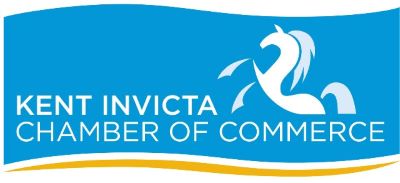Small businesses are keen to reduce their carbon emissions, become more sustainable and achieve net zero status, but they need support and smart policies to help them get there, according to a major new study.
As COP26 gets under way, the Federation of Small Businesses (FSB) has published a new study on climate change with recommendations to help support millions of smaller firms to become more sustainable.
It comes as the British Business Bank has estimated that smaller businesses account for almost a third (30%) of all current UK greenhouse gas emissions (including emissions from households, industry and government) and 50% of total emissions from UK businesses.
The FSB study, Accelerating Progress: Empowering small businesses on the journey to net zero, pulls together findings from a 1,200-strong small business survey. The results show that:
- 56% of small firms believe that the planet is facing a climate crisis but only 36% have a formal plan in place to combat climate change;
- However, many have taken meaningful steps, with 67% addressing energy usage;
- Amongst those who have not yet taken action, 24% are worried about the return on investment and 22% say they don't have enough capital to invest in assets such as heat pumps and solar panels;
- 64% of small firms have increased recycling and 50% have taken steps to eliminate waste wherever possible.
When it comes to zero emissions vehicles (ZEVs), 46% of those surveyed cite the extra expense as a barrier to change and 35% say poor provision of charging points is holding them back. One in six (16%) cite the lack of an established second-hand market for ZEVs.
Over half (54%) of small businesses say that grants or low-interest loans would be a strong incentive to become more energy-efficient, while three in ten (28%) say a discount on business rates would encourage them to do so.
In light of the findings, the FSB is urging the government to:
- Launch a Help to Green initiative, modelled on Help to Grow, encompassing £5,000 vouchers that businesses could spend on environmental products and services.
- Introduce a scrappage scheme through which diesel commercial vehicles could be recycled in exchange for grants that could be put towards cleaner hybrids and ZEVs.
- Work with Ofgem to establish a taskforce of suppliers, small business landlords and business groups to agree how to cut energy use in rented premises.
- Lower the capital requirements banks must adhere to when lending to businesses for green improvements.
- Deliver the necessary ZEV charging infrastructure by 2030.
FSB national chair Mike Cherry said: "Adopting sustainable practices on the journey to net zero is everyone's duty. Small businesses are keen to play their part, but often don't have the resources, deep pockets and dedicated specialists enjoyed by their larger counterparts, so can find identifying and taking the necessary steps a challenge.
"With world leaders converging on Glasgow for COP, we need much more than a talking shop. This moment must be a catalyst for governments to remove the barriers that are holding small businesses back. If we are to successfully transition to net zero, it'll be through grassroots action, enabled by smart and supportive policies."
A survey by the Institute of Directors (IoD) this week has uncovered similar findings. Its poll of 600 business leaders found that:
- Only 28% of directors' organisations measure their carbon impact;
- Just 27% have a "well worked out plan" to reduce their carbon footprint;
- Only 16% have set a date to reach net zero;
- 51% of business leaders believe that it is the role of the government to provide advice to businesses on how to reduce their carbon impact.
This week, the Small Business Saturday roadshow is in Glasgow at COP26 with a fleet of zero emissions vehicles to highlight the vital role of the UK's small businesses in helping the UK get to net zero by 2050.
Michelle Ovens, founder of Small Business Britain, said: "Now estimated to be responsible for a third of all UK emissions, small businesses must be at the very heart of the nation's response to the climate crisis … Businesses need to see this as an opportunity first and foremost: an opportunity to serve their customers better, an opportunity to move early and have commercial advantage in the sustainable business space, and an opportunity to play a role in making the world a better place.
"Only by engaging small businesses will the UK meet its net zero goals. Only by working together will the small business community gain the momentum to play the role they must."
Written by Rachel Miller.
